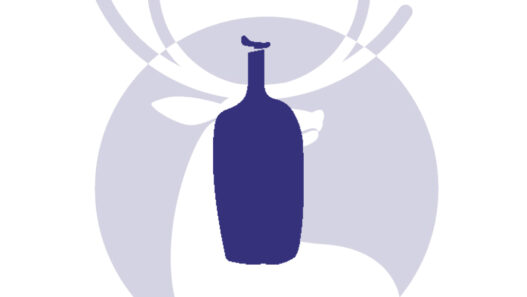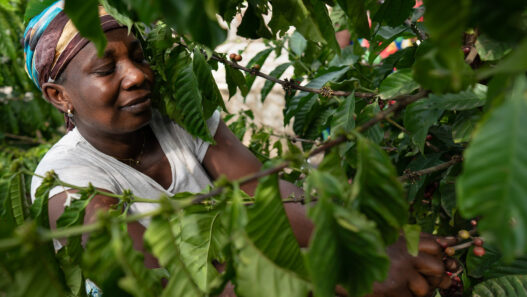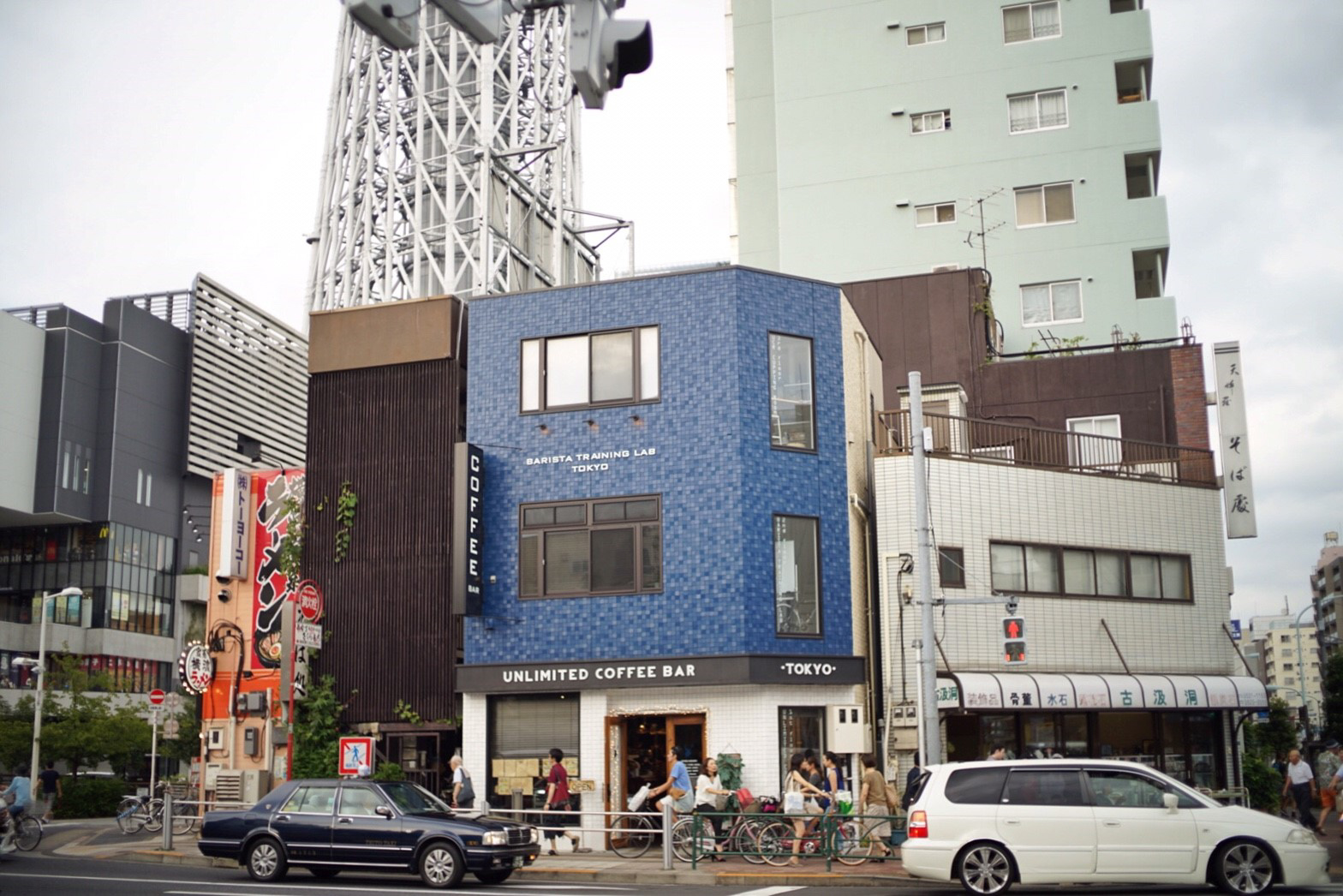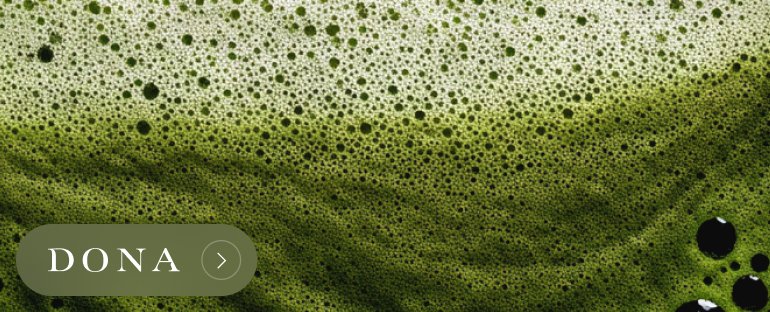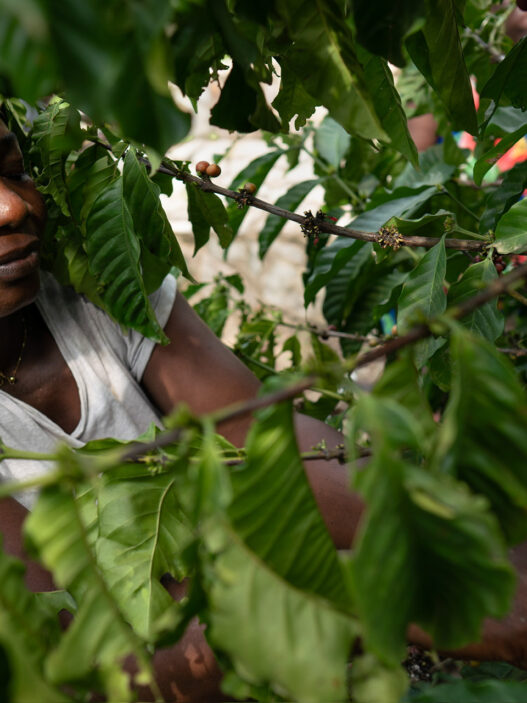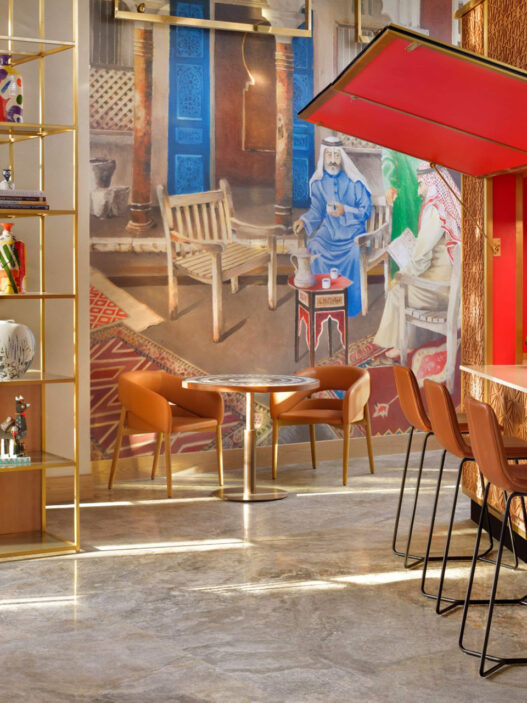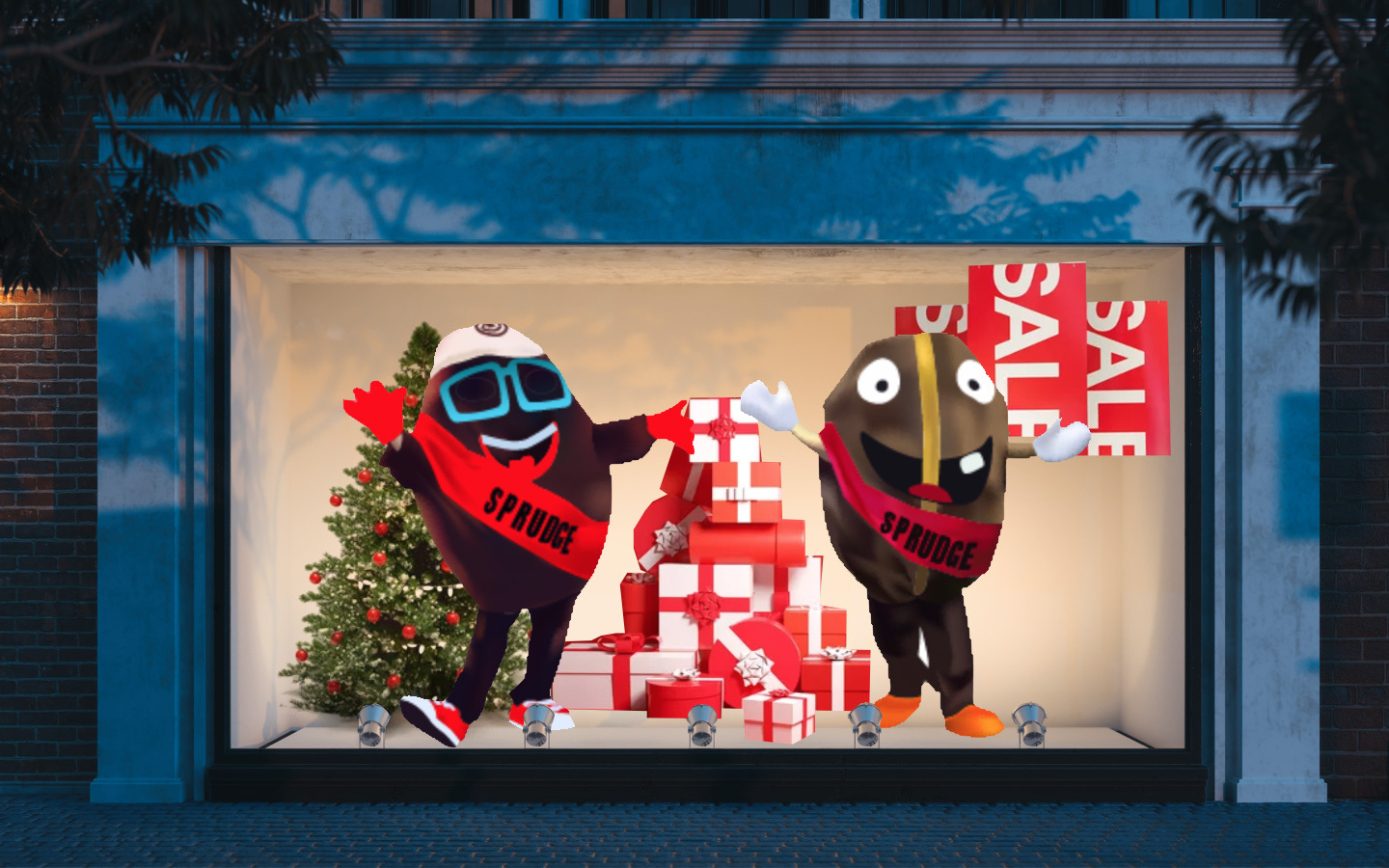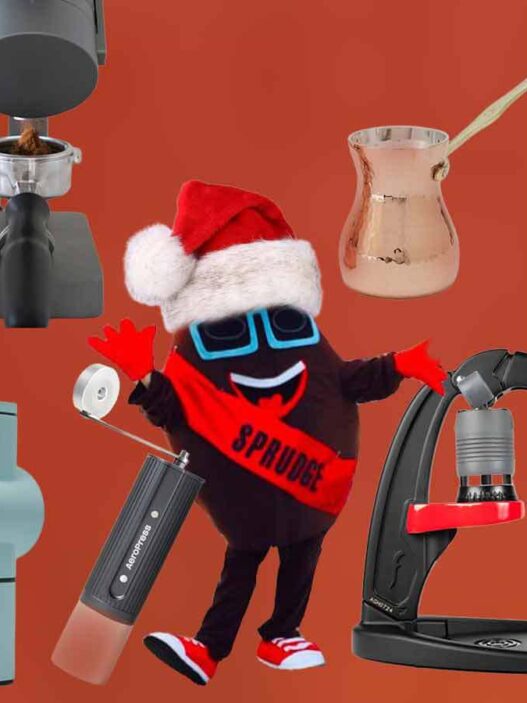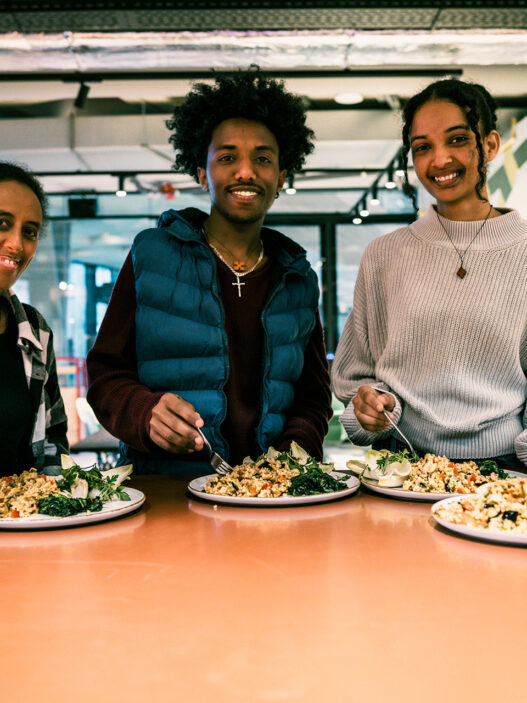
In April of 2008, journalist Michaele Weissman released her groundbreaking book God in a Cup: the Obsessive Quest for the Perfect Coffee. Now, in a three part series on Sprudge, Weissman revisits specialty coffee’s effort to alter the relationship between coffee growers and buyers by introducing innovative, relationship-based sales practices known collectively as “Direct Trade.”
Part one: Is Direct Trade Fair?
Nine years ago I wrote a book called God in a Cup describing my adventures in coffee-growing countries following Third Wave coffee buyers Peter Giuliano of Counter Culture Coffee in Durham, Geoff Watts of Chicago’s Intelligentsia Coffee, and Duane Sorenson of Portland’s Stumptown Coffee Roasters. In addition to contributing to the myth around my trio of sources, the book gave readers a bird’s-eye view of the specialty industry. It did this by dramatizing scenes from the buyers’ work lives. Some of the book’s most compelling moments showcased the emergence of a new, face to face way for small roasters to buy coffee at origin from farmers they worked with year after year.
The purchasing model, dubbed “Direct Trade” by Watts, reconceived the relationship between buyer and seller as a partnership with two goals: expanding the supply of quality beans and elevating growers who focused on quality out of poverty.
The buyers had a third, softer goal. They believed respectful, non-exploitative interactions with their suppliers would go a long way towards removing the lingering stench of colonialism from the specialty business. Instead of the traditional zero-sum game—rich men reaping profits from the labor of poor—they looked to a future in which all would grow rich—well, richer—together.
Functionally, the program introduced the practice of farmers separating their beans into quality-rated lots. But from its inception, specialty roasters recognized Direct Trade’s importance as a marketing tool. By promoting their relationships with farmers and by telling the stories of the coffees they sold, they sought to add value to their products. Not only did this strategy work, it significantly upped the profile of small-scale specialty roasting companies, setting into motion the tremendous expansion that has taken place in the industry in recent years.
When roasters sold and served exquisite coffees that they had helped nurture into existence at farms perched on mountainsides halfway around the world, customers were willing to pay more for the contents of their cups. As with shoppers at farmers’ markets paying more for heirloom tomatoes, the stories behind their purchases made a difference. Customers opened their wallets for the taste of the coffee and the meaning embedded in the taste. This is a crucial point: the value of specialty coffee is a function of both pleasure and meaning.
Writing God in a Cup, I appreciated the sincere desire of many specialty coffee buyers to improve the lives of coffee farmers, but I was skeptical of a business model that relied on buyers to simultaneously pursue their own best interests and the best interests of their suppliers. What happened when those interests ceased to converge? That question went unanswered.
In the intervening years as I continued to follow developments in the specialty industry, my concerns about Direct Trade grew. On the consumer end of the supply chain, things looked good. There was more high-quality coffee available in the US, and there were more quality-oriented small roasters and cafes. But what about the farmers? The challenges they faced—droughts and floods brought about by climate change, pestilence such as coffee leaf rust and coffee borer beetles, economic and political dislocation driving young people off of coffee farms and into cities—seemed downright biblical.
Could Direct Trade overcome all these problems? I had my doubts. Seemed to me marketing had subsumed Direct Trade’s other goals. Like many lovers of specialty, I grew tired of hearing neophyte roasters describe their trips to origin to buy coffee from “poor farmers” who were their new best friends. (Noah Namowicz, partner and VP of sales at Cafe Imports has called these enthusiasts “white Jesus saviors.”) If so many roasters were saving so many coffee farmers, why were producers in so much trouble?
The story might have ended there. With cynicism triumphing over hope.
But then, remembering Giuliano and Watts’ moral seriousness when discussing Direct Trade, I decided to dig a little deeper. Which explains why I spent September researching this article, talking with a dozen and a half specialty roasters, growers, importers, and all-around coffee gurus. To my surprise, what I learned about Direct Trade was more nuanced—and more hopeful—than I expected.
Yes, the vast majority of coffee farmers worldwide struggle to survive. Still, there is reason to believe the Direct Trade model when pursued sincerely is a force for good, leading to improved incomes for farmers and an increased sense of producer optimism. This is the central finding of the most rigorous assessment of Direct Trade undertaken to date, the five-year Borderlands project, funded by the Howard G. Buffett Foundation.
Direct Trade isn’t a panacea. But for farmers hoping to earn a better living, it does appear to be the only game in town. As Michael Sheridan, Intelligentsia’s newly hired director of sourcing and sustainability who managed the Borderlands project while working for Catholic Relief Services in Latin America told me: “Direct Trade is the worst system for buying green coffee we have, except for all the others. Yes, there are problems, especially problems of scale, but it’s the best we have.” Sheridan, a one-time skeptic, is eager to see Direct Trade expand.
“The Best We’ve Got”
Back in 2008, Geoff Watts wrote a set of Direct Trade standards for Intelligentsia that mandated how the company would do business at origin. These standards continue to shape Intelligentsia’s buying program and are posted on the company’s website. They stipulate first and foremost that the quality of Direct Trade coffee must always be exceptional. In addition, sellers and buyers were required to commit themselves to financial “transparency,” and growers were required to engage in “healthy” environmental and “sustainable” social practices—though these words were not fully defined. In return, Intelligentsia promised that the “verifiable price to the grower or local co-op” would be “at minimum 25 percent above the Fair Trade price.” (Prices are often much higher.) And finally, Intelligentsia assured farmers that its buyers would visit their Direct Trade partners at origin at least once a year, but ideally three times a year.
PT’s Coffee Roasting Company of Kansas City, MO adheres to Intelligentsia’s standards. Counter Culture, with the industry’s most rigorous Direct Trade standards, publishes an annual transparency report on its website showing how the money it pays for green coffee travels along coffees’ long supply chain. Two other quality-focused coffee companies, Tim Wendelboe (Norway) and 49th Parallel (Canada), publish similar transparency reports. Among other companies committed to transparent buying standards and nurturing long-term relationships with growers are Stumptown, Irving Farm Coffee Roasters of New York, Heart Coffee of Portland, Oregon, Madcap Coffee Company, Grand Rapids, Michigan, Stone Creek Coffee of Milwaukee, Wisconsin, and Verve Coffee of Santa Cruz, California. To determine how assiduously these and other companies carry out their Direct Trade programs would require close examination of their financials beyond the scope of this article. What can be said with certainty, however, is that the standards set out at the end of the last decade have had a significant impact on the specialty coffee industry.
First: The Bad News
Direct Trade started out as a model mixing business with philanthropy. Buyers promised to pay a “quality premium” to growers with the idea that this influx of cash would help coffee-growing communities underwrite projects alleviating poverty—building wells, buying electrical generators, establishing health clinics, that sort of thing. On occasion the roasters participated hands on, playing roles in the building of wet mills, schools, and other infrastructure improvements.
“We thought we could use the engine of altruism to alter capitalism,” says Giuliano, Senior Director, Specialty Coffee Association of America, recalling his years buying green coffee for Counter Culture.
To the buyers’ surprise, growers didn’t want outsiders intruding in their communities and telling them how to spend their money. “Development is a discipline of its own,” says Giuliano, adding with a laugh that coffee roasters know as much about digging wells as development professionals know about roasting coffee.
Moreover, the Direct Trade “quality premium” had the unintended consequence of pitting specialty roasters against Fairtrade International, which had its own premium program, a social premium, based not on coffee quality, but on agricultural labor practices. A bitter turf war broke out between the specialty roasters and Fairtrade International. “There were absolutist attitudes on both sides,” comments Colleen Anunu, Senior Manager, Coffee Supply Chain at Fair Trade USA.
Back then, “Direct Trade advocates believed paying higher prices for quality would alleviate poverty,” Anunu explains. But poverty turned out to be far more deeply entrenched than the buyers imagined. Learning this hard lesson was humbling. Over time, Anunu says, “worlds converged,” with Fairtrade International realizing farmers need to focus on quality coffee to earn more and specialty buyers realizing quality doesn’t happen, “without paying attention to farm conditions.”
Today buyers no longer see themselves as philanthropists or development officers. “With globalization, we don’t go to farms to save producers. We go as entrepreneurial partners,” explains Andrew Daday, director of green coffee at Stumptown. As to philanthropy, when Stumptown and others roasters want to do good, they tend to work in partnership with established NGOs.
The quality premium wasn’t Direct Trade’s only problem. More fundamental was its lack of a commonly accepted definition.
“Without a clearly stated definition,” says Kim Elena Ionescu, director of sustainability at the Specialty Coffee Association of America, “Direct Trade” tends to be more aspirational than programmatic…and in the long run companies do less good than their customers expect.”
“Direct Trade, at its very core, has no core,” says Trish Rothgeb, co-owner and roastmaster of Wrecking Ball Coffee Roasters in San Francisco and former director of programs at the Coffee Quality Institute (CQI). “While Intelligentsia has a set of principles to follow—Geoff Watts is the best in the business. He really does his homework—most companies are pretty cavalier about what constitutes Direct Trade,” Rothgeb says.
A prescient observer of the industry (Rothgeb coined the phrase “Third Wave”, among other achievements), she believes that without foundational documents and the kind of policing mechanisms possessed by certification programs like CQI, “Direct Trade” more often than not is a marketing strategy wrapped in a cloak of virtue. To wit: the well-respected importer, a person otherwise known for their integrity, who ships their coffees in bags stamped Direct Trade to roasters who may or may not have visited origin. “Mostly,” Rothgeb says, “the term Direct Trade just muddies the water.”
To illustrate her point, Rothgeb recalls an online exchange she had earlier in the year with a European roaster who reported with pride that he had just bought his first Direct Coffee. An online chorus of congratulations greeted his announcement.
Rothgeb, who buys Wrecking Ball’s green coffee (2016 predicted sales: 90,000 pounds) from importers she considers partners, asked the European roaster to define “the Direct Trade components” of his purchase.
Well, he said, he had visited the farm, and he planned to market the coffee as Direct Trade.
Rothgeb asked—what was his level of involvement with the farm? Was his contract with the importer or with the grower himself? Moreover, she questioned, “if the coffee doesn’t live up to expectations when it arrives, who will bear the financial burden?”
“I wasn’t being judge-y,” Rothgeb insists. “I just wanted to know what differentiated this purchase from any other.”
“To have meaning,” the importer Noah Namowicz offers, broadening out the debate, “Direct Trade has to be about more than a three-day vacation. Visiting origin is awesome, but spending time at a cupping table in Colombia doesn’t mean you and the grower are partners,” he says, “That alone does not add value to your coffee.”
“Direct Trade is tricky,” says Wille Yli-Luoma, the Finland-born co-owner and founder of Heart Coffee in Portland, Oregon.
Yli-Luoma, who discovered coffee as a second career after a successful run as a professional snowboarder, spends three months a year visiting coffee farms and admits to having a “love/hate relationship” with Direct Trade.
“I can’t tell you how many farmers in Colombia and Guatemala have complained to me about buyers who show up at the farm for a few days talking up a storm, telling them to do this and that, maybe double ferment, maybe honey ferment,” says Yli-Luoma. That’s all fine and good if their experiments work, but what happens if those ideas don’t pan out? And what right do buyers and roasters with no binding contract have to dictate to coffee producers—how is this Direct Trade?
“Time after time it’s the grower who is left holding the bag,” says Yli-Luoma, before adding with Scandinavian bluntness: “The problem is, a lot of roasters don’t know shit.”
***
Join us again in March for part two of the original reported series “Is Direct Trade Fair?” by Michaele Weissman on Sprudge.
Michaele Weissman is the author of God In A Cup: The Obsessive Quest for the Perfect Coffee, published in 2008 by Houghton Mifflin Harcourt, and is a freelance journalist writing for The New York Times, The Washington Post, and The Wall Street Journal. This is Michaele Weissman’s first feature for Sprudge.




